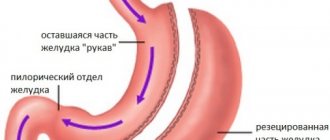Eating dry food, snacking on the run - this has become commonplace in the modern world. Unfortunately, every year the number of patients with gastritis, as well as gastric and duodenal ulcers, is steadily increasing. Today, there are many drugs available to treat these diseases. One of the drugs - De-Nol - is effective and safe, which will help cope with gastritis and ulcers.
pharmachologic effect
The drug has an astringent effect, due to which a film forms on the surface of the mucous membrane of the stomach and duodenum at the site of the lesion. Thus, the affected areas are protected from the aggressive action of gastric juice, which means that the progression of the process is suspended. The presence of a protective film promotes scarring of ulcerative lesions.
De-Nol is harmful to Helicobacter pylori, which is the main culprit in the formation of ulcers on the gastrointestinal mucosa. Not a single strain of this pathogenic bacterium is resistant to this drug.
In addition, taking the drug has a beneficial effect on the digestion process in the stomach due to the fact that it improves microcirculation in the mucous membrane of its antrum.
Pharmacological properties of the drug De-nol
In an acidic environment, De-Nol forms a protective film on the surface of ulcers and erosions, which promotes their scarring and protects them from the effects of gastric juice. De-Nol stimulates the synthesis of prostaglandin E2, which stimulates the formation of mucus and the secretion of bicarbonate ions, leads to the accumulation of epidermal growth factor in the defect area, and reduces the activity of pepsin and pepsinogen. In addition, De-Nol has a bactericidal effect against Helicobacter pylori. Bismuth subcitrate is practically not absorbed into the gastrointestinal tract; only a small amount of bismuth can enter the systemic circulation. Bismuth entering the blood is excreted in the urine, and its concentration in the blood plasma decreases rapidly after treatment. De-Nol is excreted primarily in feces.
What do De-Nol tablets help with?
Taking this medicine is indicated for:
- Acute and chronic gastritis and gastroduodenitis;
- Exacerbations of gastric and duodenal ulcers;
- Gastropathy that developed as a result of taking NSAIDs or alcohol;
- Functional dyspepsia.
In addition, a gastroenterologist may prescribe De-Nol for pancreatitis. In this case, the drug helps eliminate intestinal dyskinesia, which often accompanies a chronic inflammatory process in the pancreas.
Indications for use of the drug De-nol
Peptic ulcer of the stomach and duodenum, gastritis, including those associated with Helicobacter pylori (as part of anti-Helicobacter pylori therapy regimens); chronic gastritis and gastroduodenitis in the acute phase, including those associated with Helicobacter pylori ; functional dyspepsia not caused by organic diseases of the digestive tract; erosive and ulcerative lesions of the mucous membrane of the stomach and duodenum caused by taking NSAIDs; irritable bowel syndrome accompanied by diarrhea.
How to drink De-Nol
Adults and children over 12 years of age can take 4 tablets per day. They can be divided into 4 or 2 doses.
It is recommended to take the tablets half an hour before meals with water.
The drug is also used for diseases of the stomach and duodenum that are associated with the bacterium Helicobacter pylori. De-Nol is included in schemes for destroying this microbe along with antibacterial drugs.
According to experts, this drug increases the effectiveness of the Helicobacter pylori eradication (destruction) regimen. In addition, taking De-Nol is not accompanied by the risk of developing unnecessary adverse reactions, which is also important when using such a serious treatment regimen.
Use of the drug De-nol
adults and children over 14 years of age are prescribed 1 tablet 4 times a day 30 minutes before breakfast, lunch and dinner and 4 times before bedtime or 2 tablets 2 times a day 30 minutes before meals. Take the tablet with a small amount of water (but not milk). The duration of the course of therapy is 4–8 weeks. You should not take medications containing bismuth for the next 8 weeks. If persistent Helicobacter pylori , it is advisable to combine treatment with De-Nol, 1 tablet 2 times a day, with oral clarithromycin 500 mg 2 times a day and the use of amoxicillin (Flemoxin Solutab) 1 g 2 times a day. If necessary, quadruple therapy is prescribed: together with De-Nol 120 mg 2 times a day, it is recommended to prescribe tetracycline at a dose of 500 mg 4 times a day, metronidazole 500 mg 3 times a day in combination with one of the proton pump inhibitors (omeprazole, lansoprazole, rabeprazole or esomeprazole) in a standard therapeutic dosage. The duration of combination therapy is 7–14 days. To improve regeneration in case of ulcerative defect, further treatment with De-Nol is possible: 1 tablet 4 times a day 30 minutes before breakfast, lunch and dinner, and the 4th time before bedtime. The total duration of treatment with De-Nol is up to 6 weeks (no more than 8 weeks).
Is De-Nol an antibiotic?
Despite the fact that the drug is capable of destroying Helicobacter pylori, it does not belong to the group of antibacterial agents. Consequently, its use is not associated with the appearance of such unpleasant side symptoms as diarrhea and mucosal candidiasis.
Bacteria cannot develop resistance to De-Nol due to the peculiarities of its pharmacological action. That is why the inclusion of this drug to destroy the pathogenic bacteria helps to completely get rid of the infection.
Basic rules for using the drug
To minimize the unwanted side effects of De-Nol, it is important to choose its optimal dosage and organize the correct intake.
The drug is produced exclusively in the form of tablets with a fixed content of the active substance, so the only possible way to administer the drug into the body is orally. If swallowed, De-Nol should be taken with a small amount of water.
Basic rules for using De-Nol that increase its effectiveness:
- You should not use sweet drinks, tea or coffee to wash down the drug.
- During treatment with this drug, it is necessary to limit the consumption of dairy products, as they reduce the activity of the active substance.
- The consumption of alcohol and alcoholic drugs is prohibited.
- You should not take other medications containing bismuth salts at the same time as De-Nol.
The dosage is selected and prescribed only by a doctor. It is necessary to strictly adhere to the prescribed regimen to minimize the likelihood of adverse reactions.
While taking De-Nol, stool turns black and darkens the mucous membrane of the mouth and tongue. This is explained by the fact that as a result of taking the drug, a compound is formed in the body - bismuth sulfide, which enters the oral cavity and intestines, and therefore the discharge becomes darker in color.
Attention! It is important to remember that taking De-Nol alone without combining it with other drugs and a special diet will not eliminate the exacerbation of the disease.
Health professionals recommend taking the medicine 30 minutes before meals. Half an hour is enough for a protective film to form on the surface of the gastric mucosa, so that food enters the prepared environment and does not have an aggressive effect.
The maximum daily dose for adults and children over 12 years of age is 500 mg or 4 tablets.
It is prohibited to use the drug under 4 years of age. For children aged 4-8 years, the daily dose is calculated by weight, 8 mg per 1 kg of body weight, and for children aged 8-12 years, it is recommended to take 1 tablet 2 times a day.
Side effects of the drug De-Nol
Taking the drug may be accompanied by the following side effects:
- Nausea and vomiting, frequent bowel movements or constipation.
- On the part of the central nervous system – the development of encephalopathy. This phenomenon is observed only with long-term use of the drug in high doses.
- Skin itching and rashes in case of hypersensitivity to the components of the drug.
The development of adverse symptoms when taking De-Nol is rare. Usually, if all the rules for taking this medicine are followed, patients do not encounter such problems.
Special instructions for the use of the drug De-nol
Bismuth sulfide formed as a result of taking De-Nol may turn stool black, in which case you should consult a doctor. 30 minutes before and after taking the drug, you must refrain from taking milk and antacids, since the presence of gastric juice is necessary for the formation of a protective layer. Long-term use of bismuth compounds is not recommended due to the occurrence of encephalopathy in rare cases. If you follow the recommended regimen of taking the drug, the risk of this side effect is very low. However, while using De-Nol, it is not recommended to take other drugs containing bismuth. During pregnancy and breastfeeding . Not recommended. Children . De-nol is used in children over 14 years of age. data on De-Nol’s ability to influence reaction speed when driving vehicles and working with machinery . However, such an effect of the drug is unlikely.
Overdose symptoms
An overdose of De-Nol is accompanied by impaired functional activity of the kidneys. These changes are reversible: after discontinuation of the drug, kidney function is completely normalized.
In case of overdose, saline laxatives and enterosorbents are used. Gastric lavage is also recommended.
In rare cases, if the dose is repeatedly exceeded, renal failure may develop. In this case, renal dysfunction can only be compensated for by hemodialysis.
Indications and contraindications
De-Nol protects the mucous membrane from the effects of hydrochloric acid, active enzymes and other aggressive factors, thereby promoting the healing of erosive and ulcerative lesions. All this determines the indications for prescribing the drug:
- Gastritis, gastroduodenitis, duodenitis and other inflammatory diseases of the gastrointestinal tract.
- Peptic ulcer of the stomach and duodenum. In this situation, the drug is used not only to treat exacerbations, but also to reduce the risk of their occurrence.
- Irritable bowel syndrome, which is accompanied by stool upset, dyspeptic syndrome and abdominal pain.
- Gastropathy caused by taking medications or alcohol.
- The need for eradication of Helicobacter pylori infection. De-Nol penetrates into the deep layers of the gastric mucosa and blocks the metabolism of the bacterium.
- It can be used for chronic cholecystitis or pancreatitis if the transport function of the gastrointestinal tract is impaired.
Contraindications to the use of the drug:
- Age under 4 years.
- Pregnancy (the active substance causes mutations in the fetus, leading to congenital diseases of the nervous system).
- Lactation period.
- Chronic renal failure.
- Individual intolerance to bismuth tripotassium dicitrate or auxiliary components of drugs.
Is it possible to use De-Nol as a prophylactic agent?
Gastritis and gastric ulcers have a chronic, often relapsing course. Periods of exacerbations are followed by remissions. More often, the deterioration of the health status of patients occurs in spring and autumn, which is associated with weakened immunity and massive hypo- and avitaminosis. Patients also note increased pain during emotional stress, heavy physical labor and deviations from the diet.
The prophylactic use of De-Nol can prevent the occurrence of an exacerbation of the disease. Persons suffering from ulcers and gastritis are recommended to take the drug in early autumn or spring, without waiting for their health to worsen. It has a moderate antacid effect and reduces the aggressive influence of factors from the external and internal environment of the body.
De-Nol during pregnancy and lactation
Doctors unanimously prohibit pregnant and lactating women from taking De-Nol. The drug poses a particular danger to the fetus, starting from 5-6 weeks. It is during this period that the formation of all the systems and organs of the future baby occurs. The use of De-Nol during pregnancy can lead to spontaneous abortion, mutations and the occurrence of a number of congenital disabilities.
During lactation, the main substance of the drug, bismuth tripotassium dicitrate, passes into breast milk through the bloodstream. If it is consumed, a newborn may develop kidney and nervous system diseases.
In this regard, the use of De-Nol in pregnant women is strictly prohibited; when breastfeeding, taking the drug is possible only when the baby is transferred to artificial feeding.





